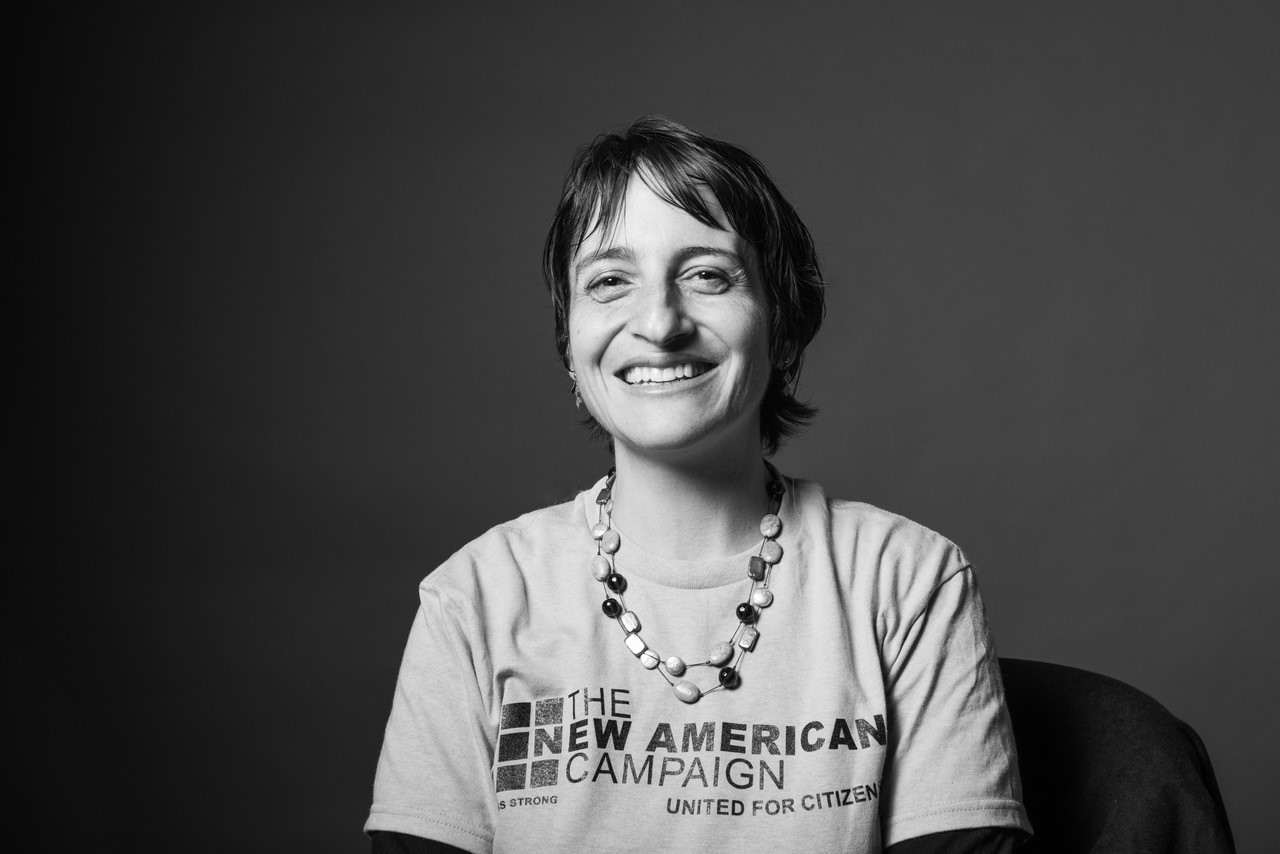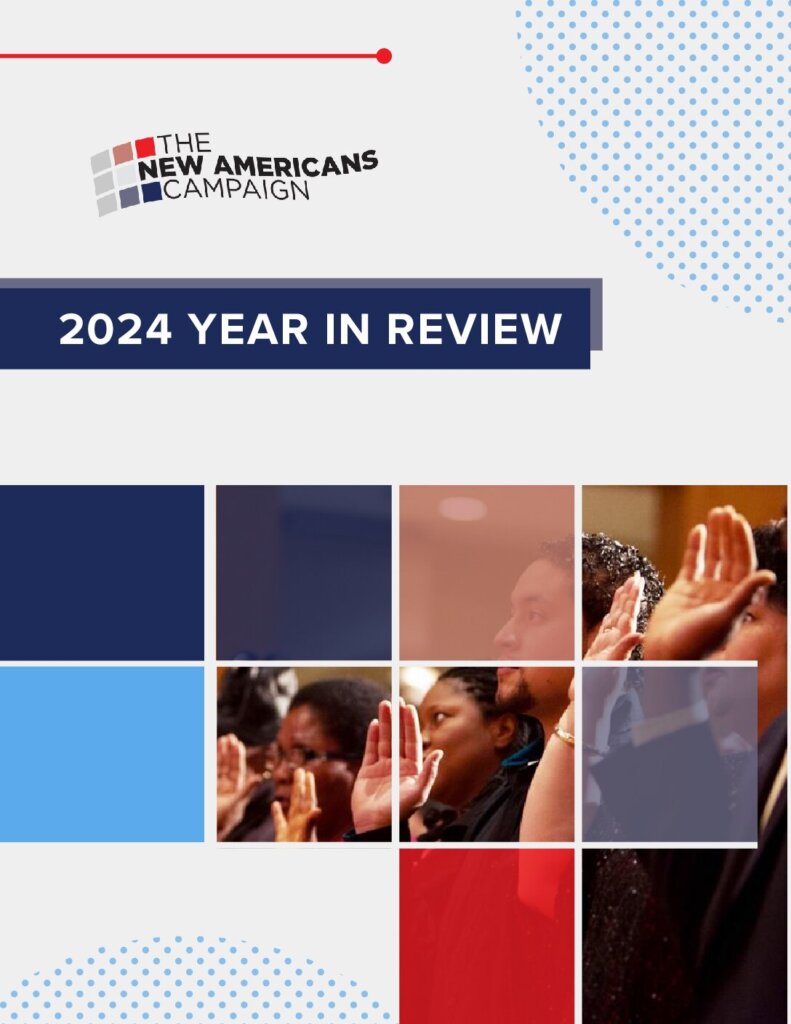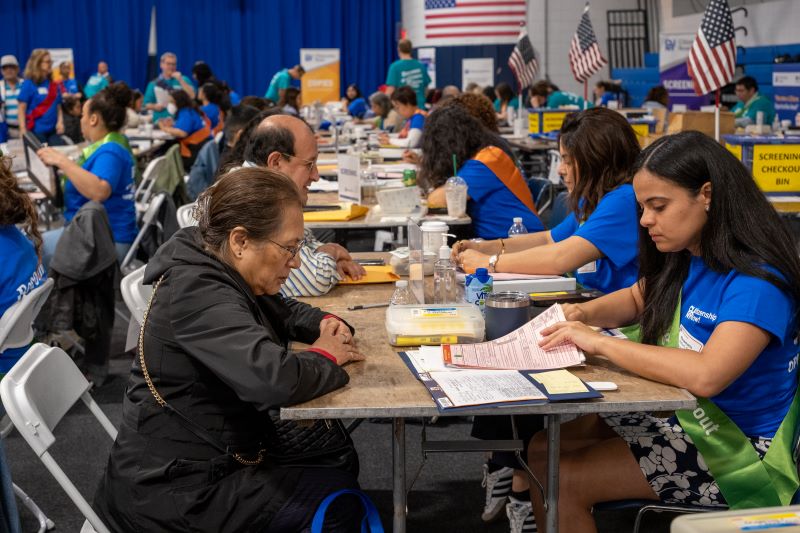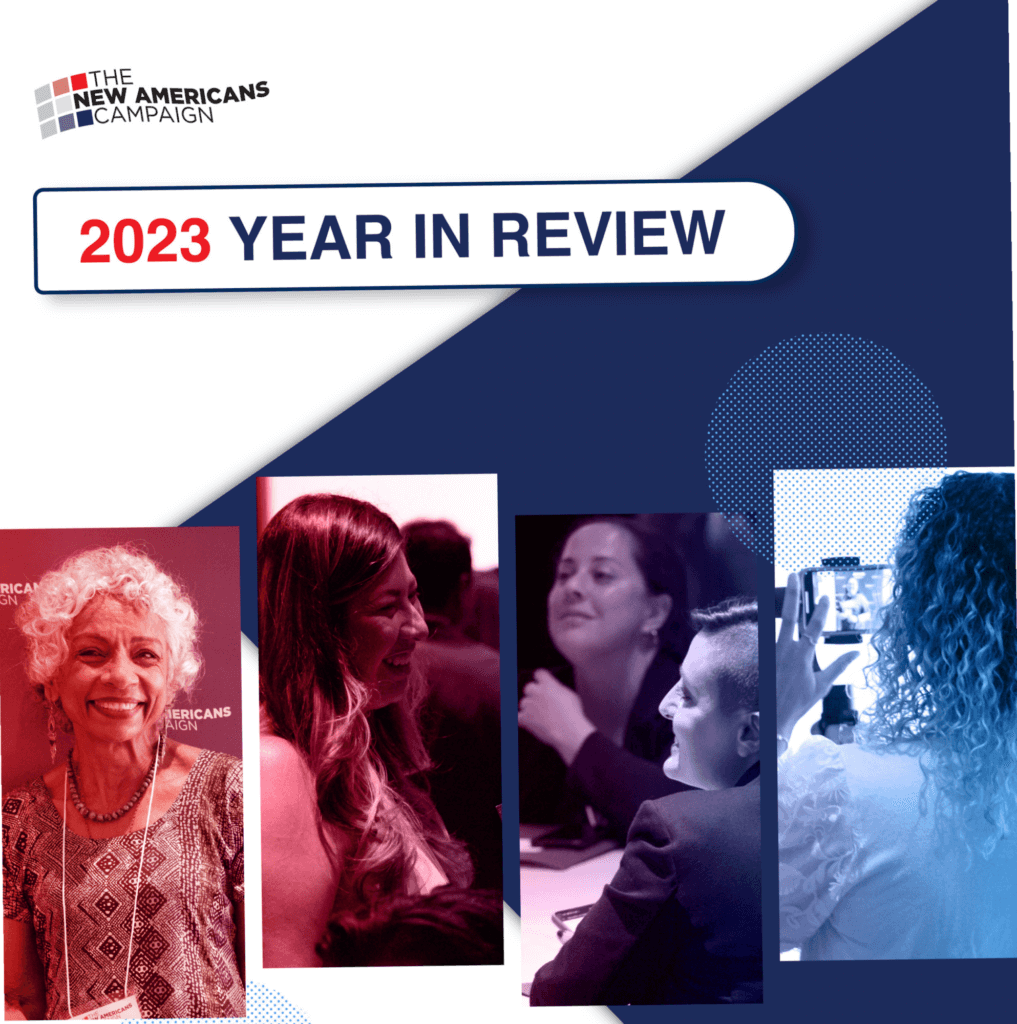Melissa Rodgers: My drive to help people become U.S. citizens comes from believing that we should all have a voice in a democracy.

Explore more
Melissa Rodgers was the Director of Programs for the Immigrant Legal Resource Center in San Francisco, where she led the New Americans Campaign from 2013 through March 2021.
My connection to the United States, on my mother’s side, began when my grandmother came to this country in the early 1940s as a refugee. She was born in Russia, but she was a stateless person for many years, living in Germany, living in a German enclave in Poland, living in Belgium, and eventually settling in the South of France, where she met and married my grandfather. At that time, however, it was not safe for Jews to live in the South of France, so my grandparents got visas and fled to the United States. They arrived in New York City during the war, fell in love with the city, and spent the rest of their lives there.
My parents moved to France soon after I was born. I grew up going back and forth to the United States to visit family, while living in France, where I was not a citizen. Speaking to my grandmother during these visits, I was always aware of the privilege of being a U.S. citizen. For her, it was the first country that gave her a passport. She described to me going to visit friends and family back in Europe after she became a citizen, and then when she returned to the United States having the passport control officer say “Welcome Home” to her because she was carrying a U.S. passport. She said the first time that happened to her, she was moved to tears.
My drive to help people become U.S. citizens comes from believing that we should all have a voice in a democracy. There are nearly 9 million people living in the United States as permanent residents who will get that voice if they become U.S. citizens.
Every individual has a story about facing obstacles on their road to citizenship. For many, the biggest obstacle is a lack of information about the process and the help available to them. The U.S. government doesn’t systematically reach out to new or long-time green card holders to encourage them to plan to apply, or tell them about the process, or let them know they can get help with the application fee if they can’t afford it. That gap, I think, is one of the biggest hurdles.
People who want to become U.S. citizens are already very attached to living here and the fact that they haven’t naturalized has to do with not having this kind of essential information. We need the U.S. government to reach out to them and to say, “You’ve had your green card for more than five years, you may be eligible to become a U.S. citizen, here’s how to apply and here is who can help you.” That’s what the New Americans Campaign does. Our partners all over the country from Seattle to Miami, from New York to San Diego, and from Detroit to Houston, all work together to reach as many people as possible, to share expertise, to share best practices, and to collaborate on the goal of helping millions across the country become U.S. citizens. This year in 2021 we celebrate having helped half a million people as we mark the New American Campaign’s 10th anniversary. Onward to the next million!



